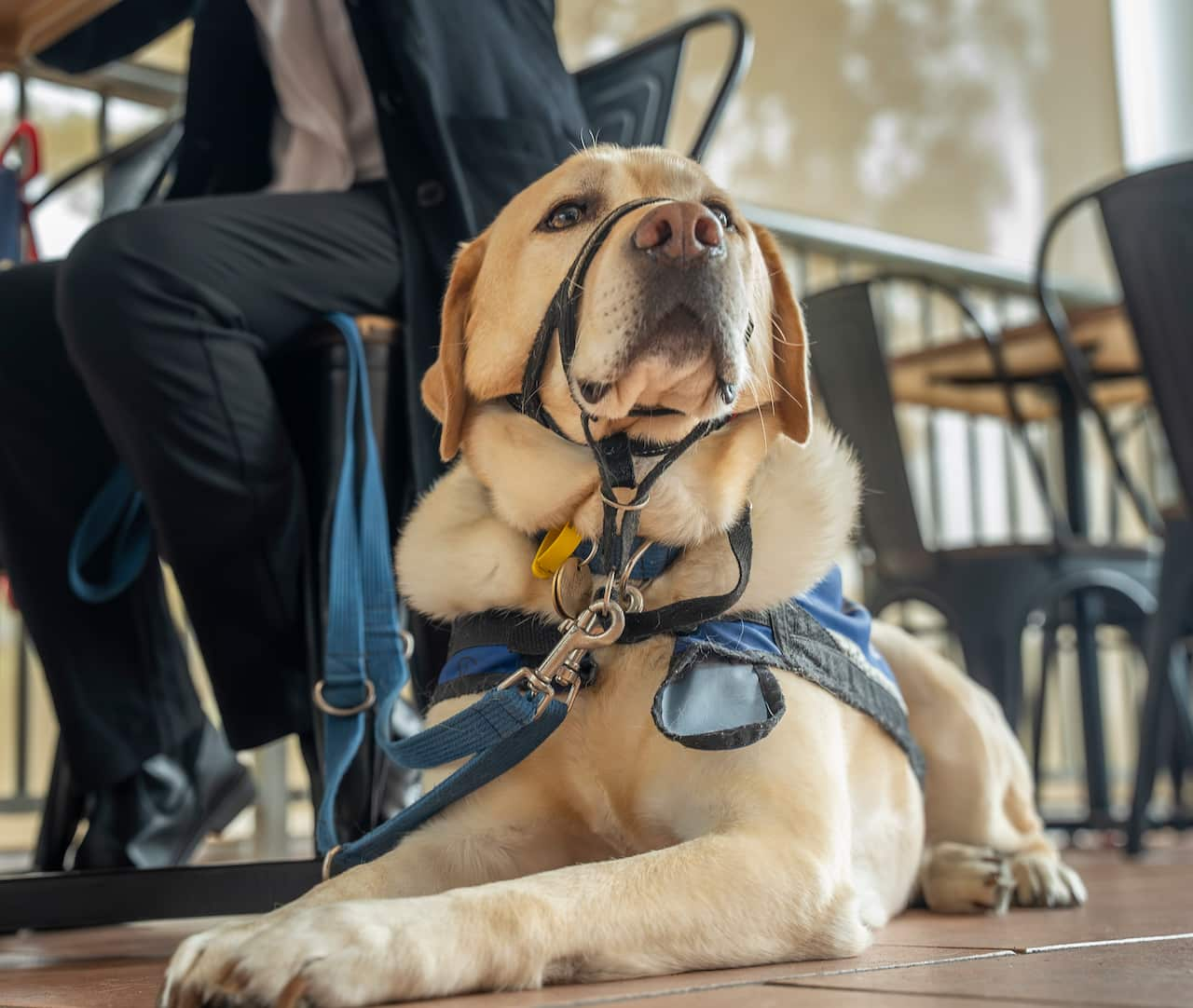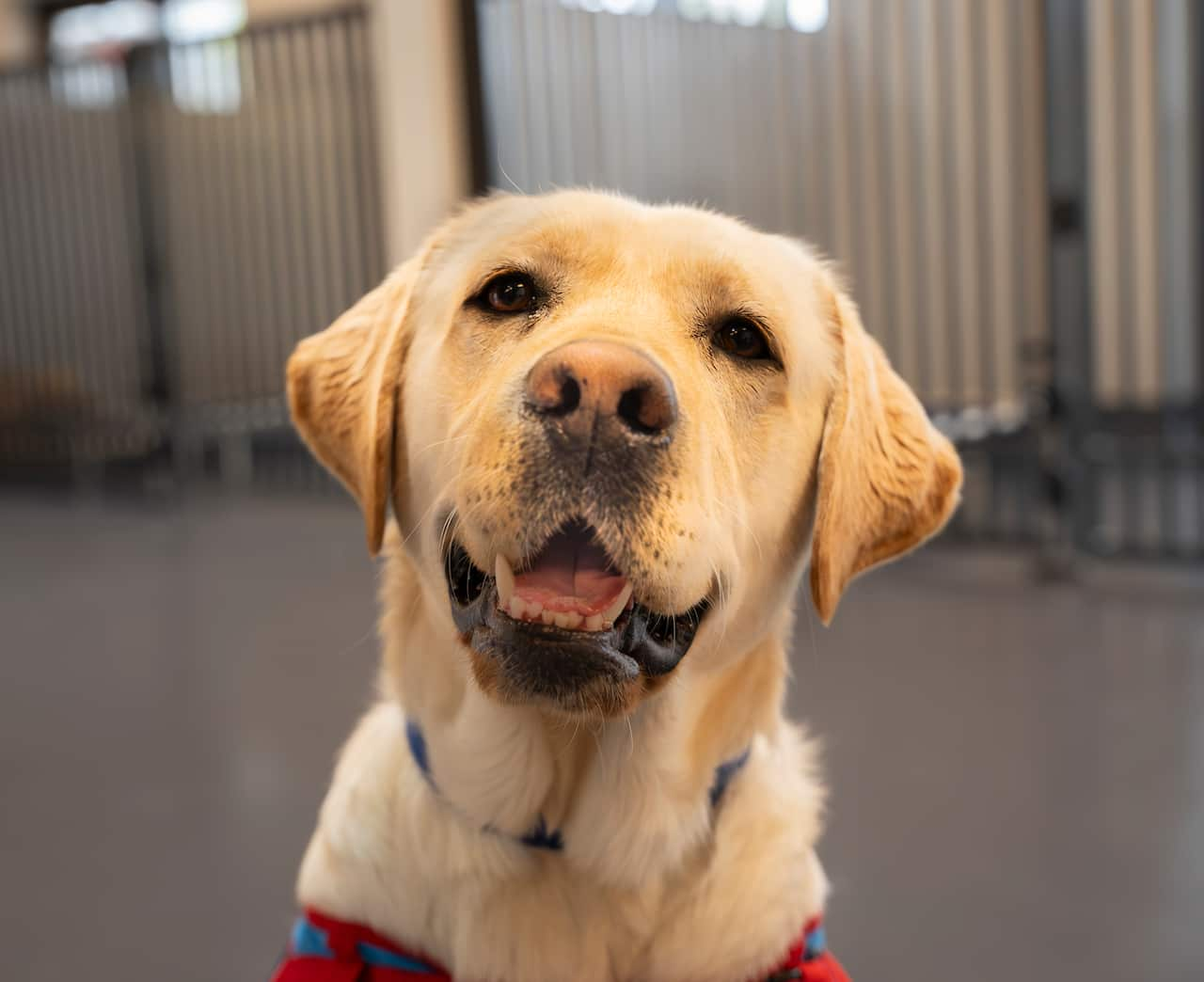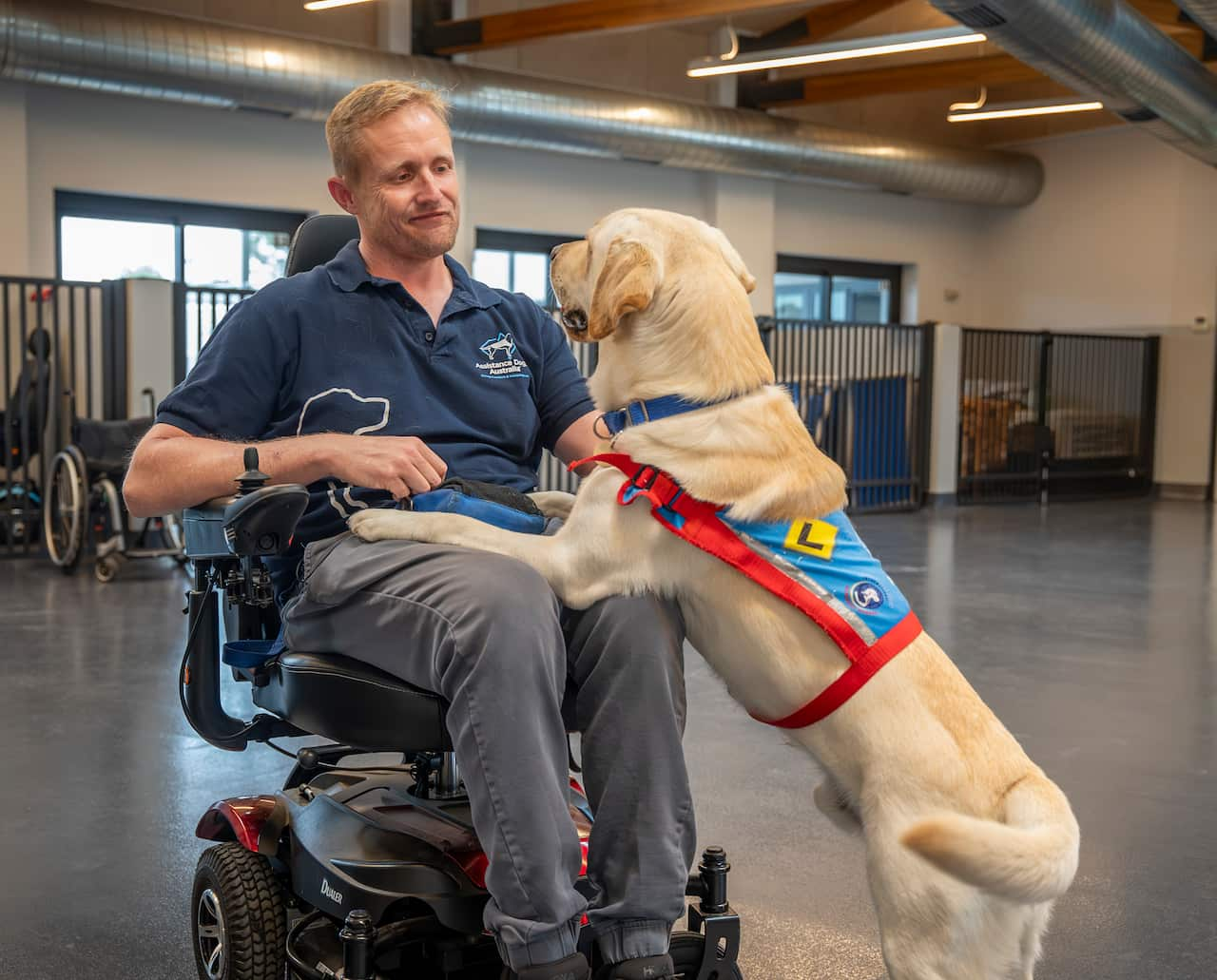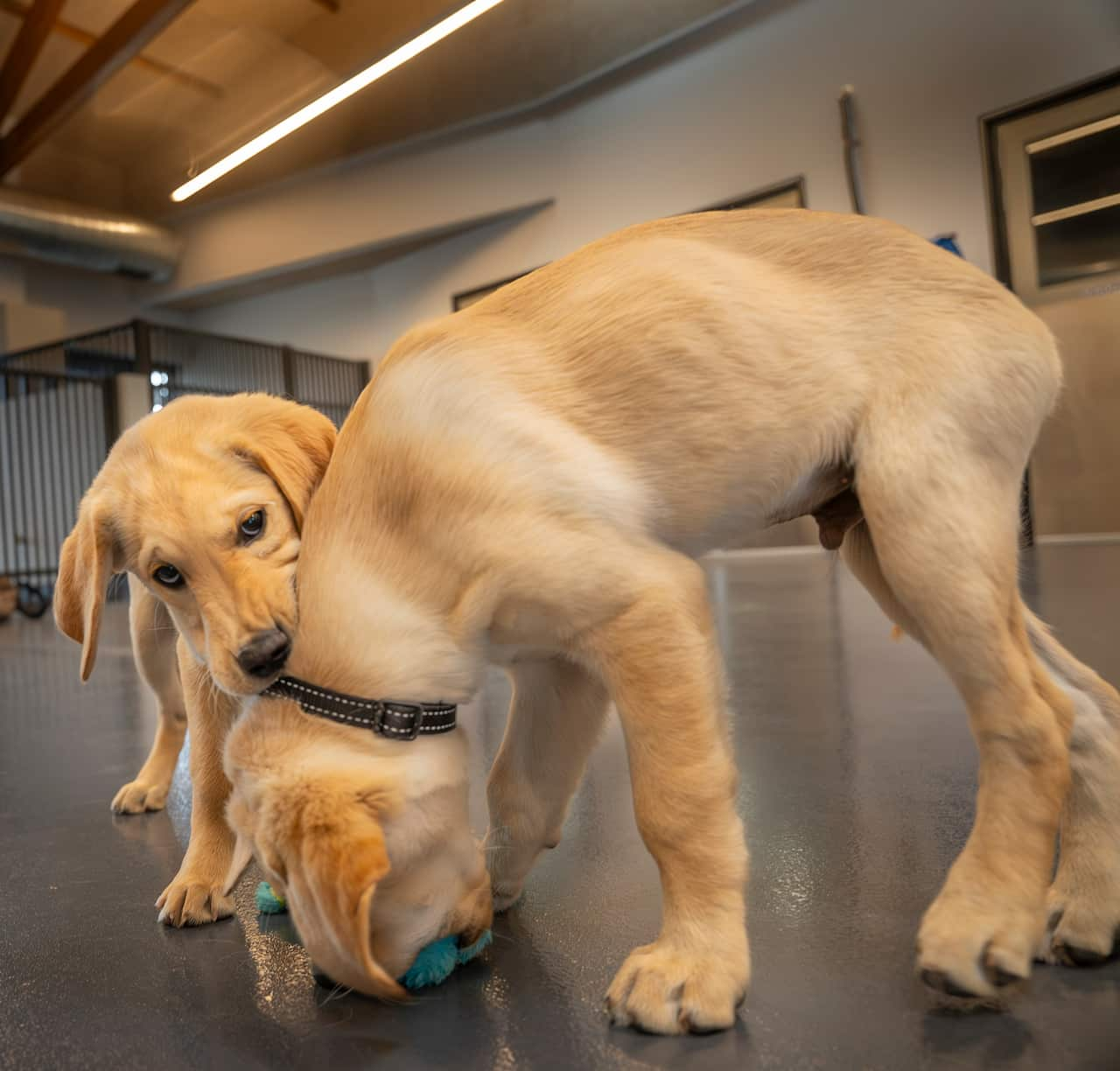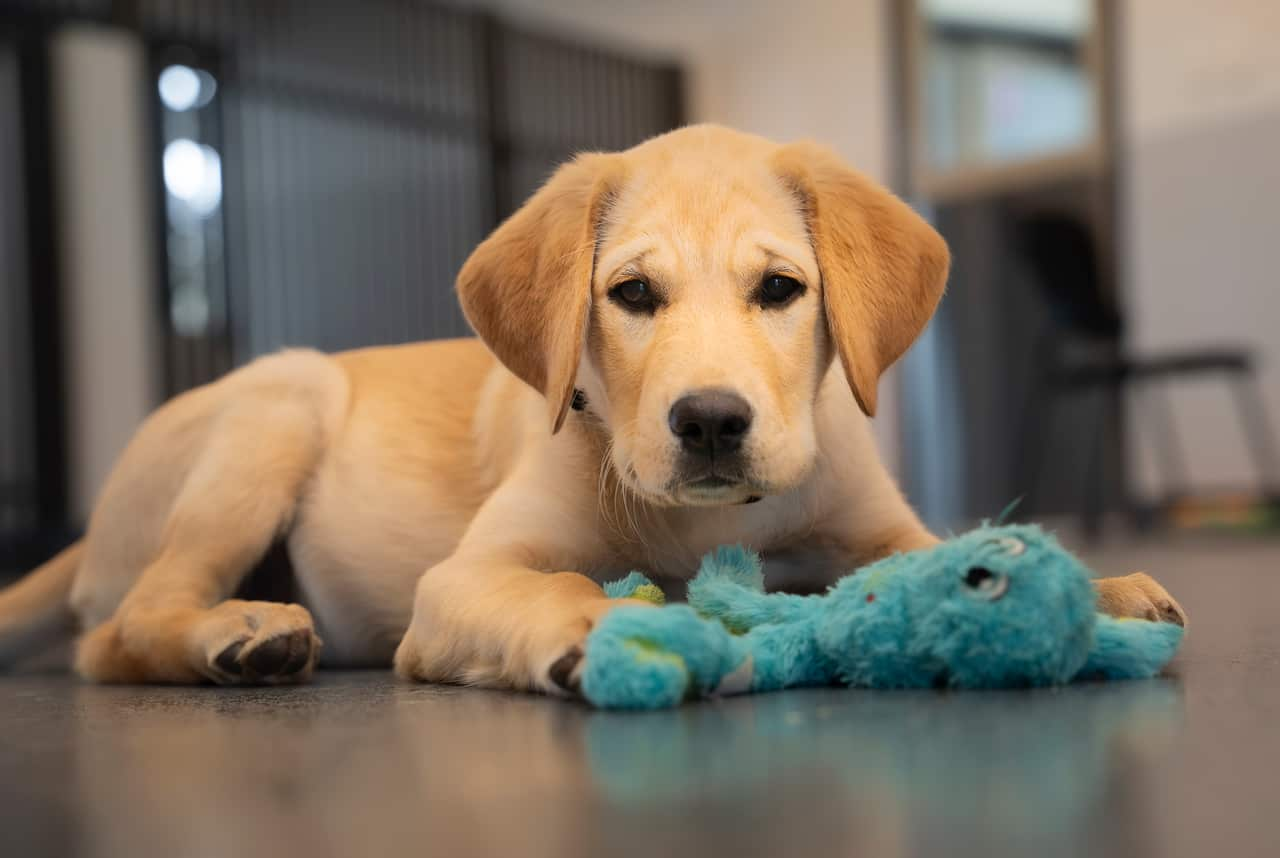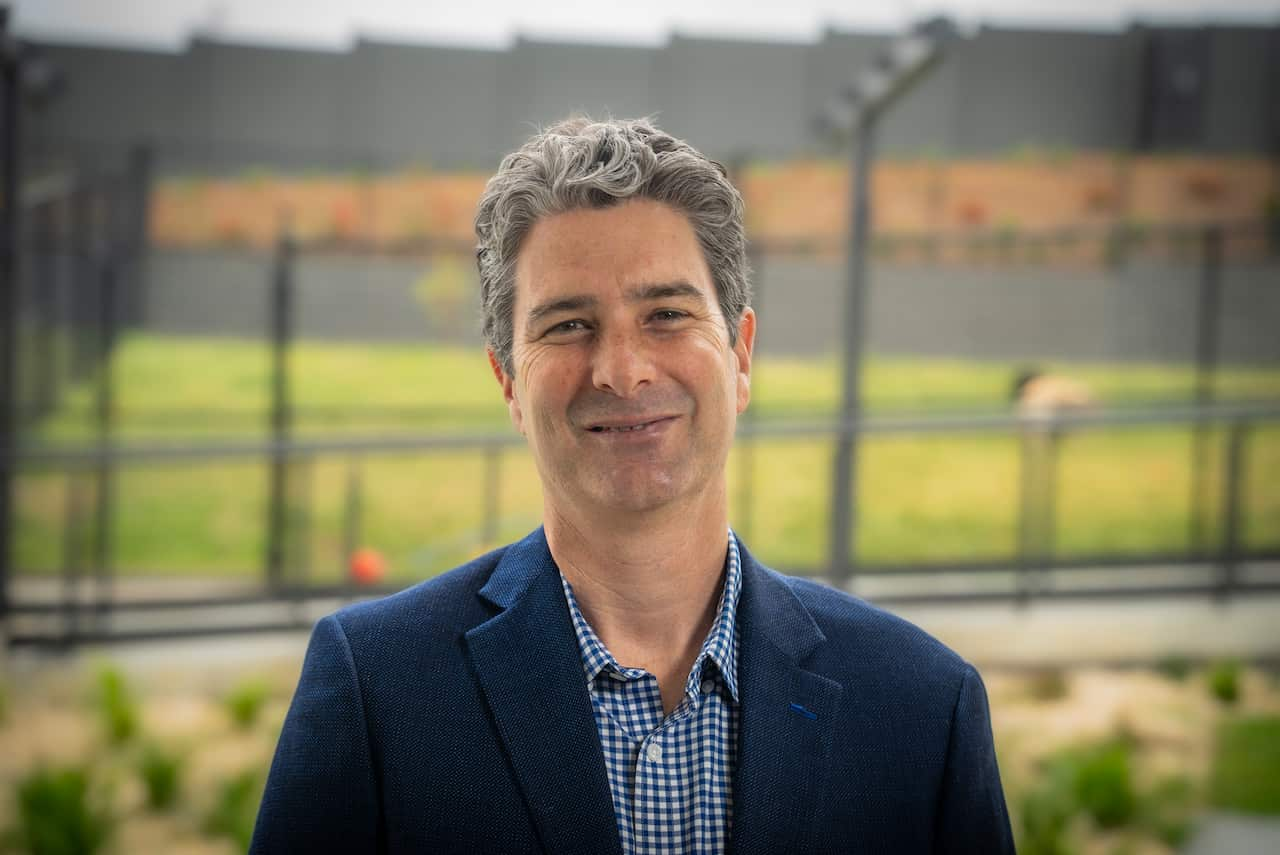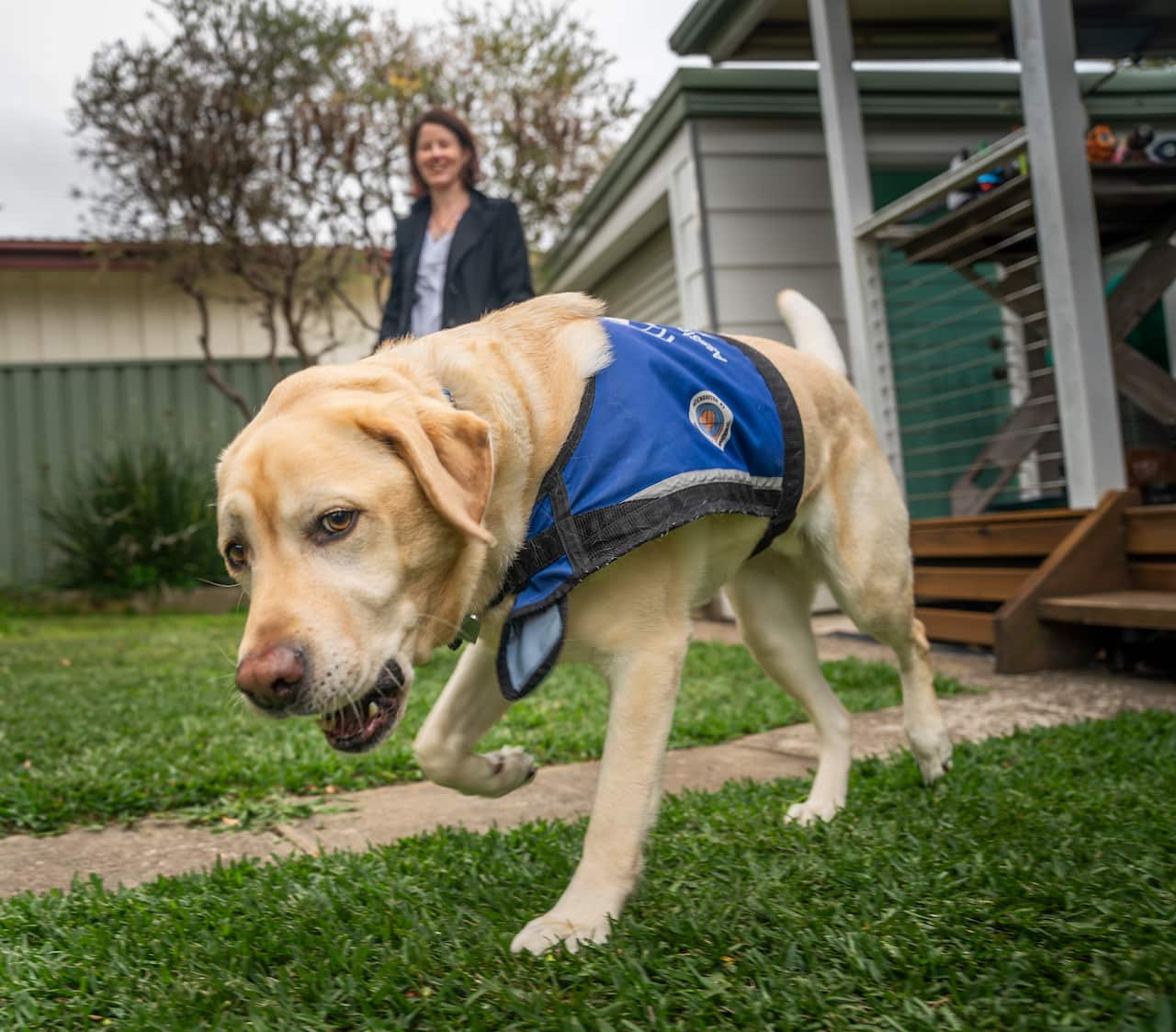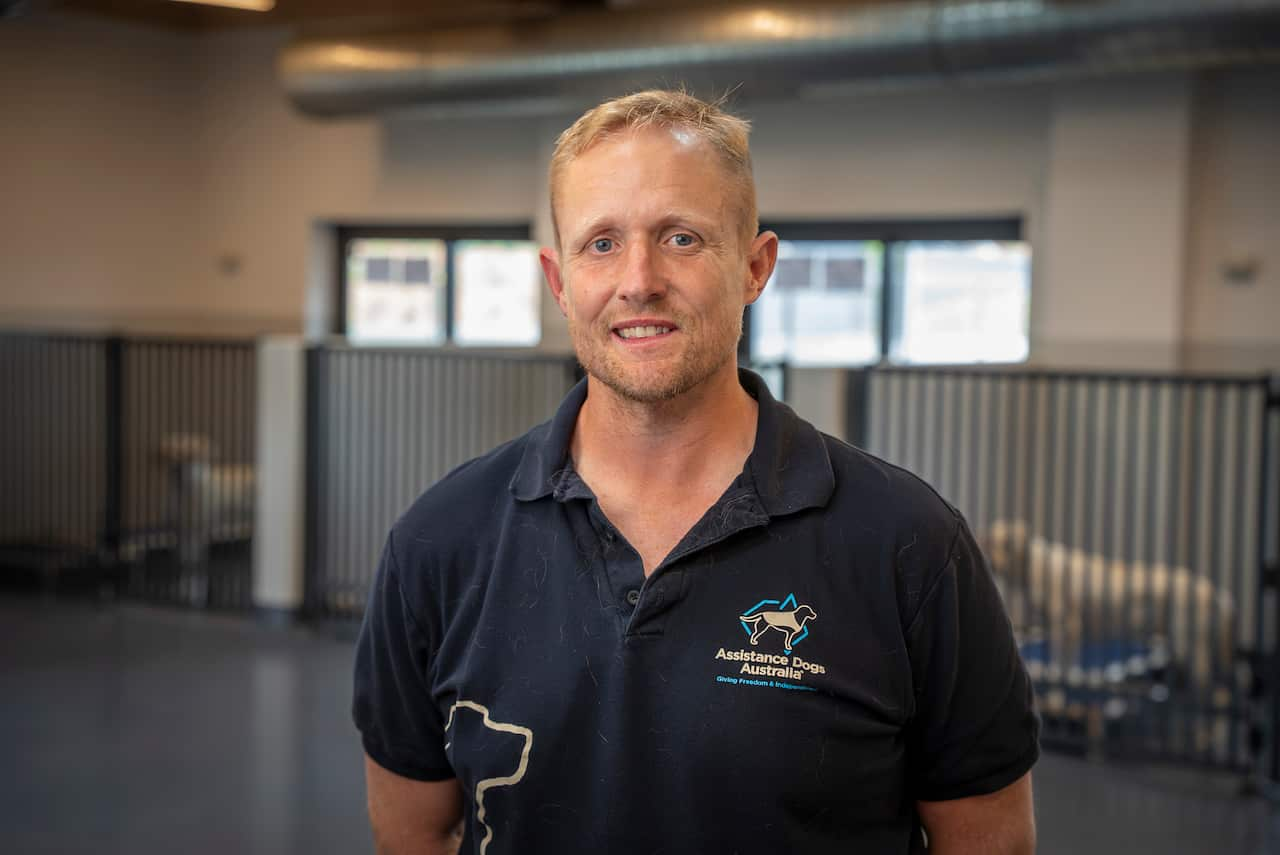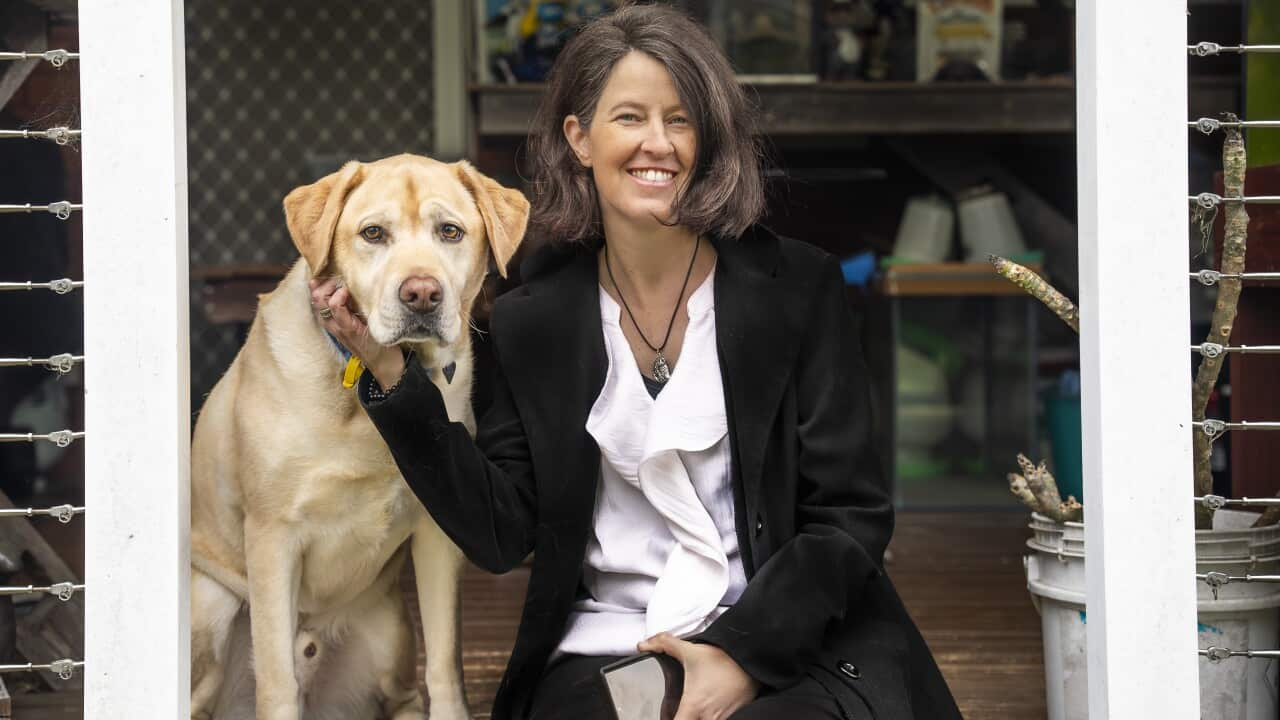Elvis is a six-year-old labrador who loves playing and chasing balls. He is also a mobility assistance dog trained to support his owner, Jess Harper.
“Elvis gives me the confidence to go out and do things, so I’m not always stuck at home, cooped up,” Harper said.
“He is really good on crowded buses and trains. If people are in the way, he will nudge the people aside so I can walk through.
“He will nudge them three times and basically say, ‘Excuse me, I’m here, move out of the way, please.'”
Mobility assistance dog Elvis accompanies Jess Harper in public places and on transport. Source: SBS / Spencer Austad
Harper has a rare neurological condition called dystonia of the legs. It causes all her muscles to contract at once, which makes walking extremely difficult.
Harper received Elvis from Assistance Dogs Australia (ADA) four years ago. As a mobility assistance dog, he accompanies her everywhere, providing physical support and balance.
“If I fall over, he will ‘alert bark’ which notifies the next-door neighbours that I’ve had a fall,” Harper said.
“If it’s not a serious fall, then I tend to lean on Elvis in a standing position. I use one hand to push myself up using his shoulder blades.”
Lenny is training to be an assistance dog. Source: SBS / Spencer Austad
How are assistance dogs trained?
ADA is a not-for-profit that provides assistance dogs at no cost to clients with physical disability, complex autism or Post-Traumatic Stress Disorder.
NSW team leader and senior instructor Chris Debenjak said dogs learn different skills depending on the client’s needs.
“The main tasks that physical assistance dogs do, generally, is picking up dropped items, opening and closing doors and cupboards,” he said.
“And then generally any mobility tasks that our client might require. It is anything from holding items for the person to jumping up and giving the wallet to the cashier, whatever they may need to do in their daily life.
“This can include helping to take off clothing and put clothing in the washing machine or removing it from the washing machine.”
Assistance Dogs Australia senior instructor Chris Debenjak says dogs learn different skills depending on the client’s needs. Source: SBS / Spencer Austad
Their dogs are labradors, golden retrievers or a cross of the two.
But training is a costly process. It takes two years and costs $60,000, covering everything from breeding to skill development and matching with a client.
So, ADA relies on donations and corporate sponsors as well as the help of volunteers.
Also known as puppy educators, volunteers help raise the dogs, starting with pups aged eight weeks and continuing up to one year.
ADA CEO Tim Taylor said: “The puppy educators, our volunteers are the lifeblood of this organisation.”
“So, over the last six months, we have really looked hard at our volunteer program to improve the experience, and we’re now actively looking for more people to join and help us.”
Zazu and Zippy will be raised by volunteers before undergoing training at Assistance Dogs Australia’s training centre in Sydney. Source: SBS / Spencer Austad
Developing a strong bond between a person and their dog is a key factor in successful training, Debenjak said.
“Our dogs are quite in tune with our body, with our characteristics, with our mannerisms. They’re quite in tune with our body language, and they can sense when we need them most,” he said.
However, not all dogs are suitable for this work. Debenjak said a good assistance dog should be highly affectionate and focused.
“Training involves grounding behaviours and emotional support behaviours. We teach our dogs to apply deep pressure to our clients, whether that be on their lap, shoulder, across their back, or wherever the client may need it. And this grounding behaviour helps regulate during difficult times of stress or anxiety.”
Assistance Dogs Australia senior instructor Chris Debenjak says assistance dogs should be highly affectionate and attentive. Source: SBS / Spencer Austad
ADA expands resources to meet growing demand
ADA supports around 200 people and also places education support dogs in schools. However, the rising demand for assistance dogs has forced ADA to close its waiting lists since the COVID-19 pandemic.
It is hoped that a new training centre with an 80-dog capacity, which opened in August in Sydney’s west with federal funding, will help change that.
Taylor said ADA has launched a new breeding program, resulting in several litters born this year. It now expects the new training centre, along with more puppies, will meet the growing demand.
“As we build our capacity right now, we’re looking to get to 300 clients in the next three years,” he said.
“So, we’re now looking forward to the future where we can actually start helping a lot more people.”
Assistance Dogs Australia CEO Tim Taylor says they aim to reach 300 clients in the next three years. Source: SBS / Spencer Austad
A life-changing relationship
Harper said Elvis has changed her life.
She first experienced symptoms of dystonia in her teens but waited years for a formal diagnosis.
“Some specialists said it was all in my head and that I just had to learn to walk properly.”
Once diagnosed, Harper said some medications caused side effects while other treatments were ineffective for her. Although physiotherapy can provide some relief, she said there is no cure.
Jess Harper says her mobility assistance dog, Elvis, has changed her life. Source: SBS / Spencer Austad
In addition to physical assistance, Elvis also provides emotional support.
“He can tell when I’m anxious, so he will come and do a visit, which is basically where he puts his head on my leg,” Harper said.
“He is a social butterfly. He’s really sweet-natured. He loves interacting with people. But when he works … he concentrates and ignores everything else that’s going on.”
Debenjak became involved in ADA as a volunteer puppy educator before becoming a trainer. He said he learned most of his skills on the job.
As part of its expansion, ADA said it is developing a Certificate IV in Assistance Dog Training, the first of its kind in Australia.
Assistance Dogs Australia senior instructor Chris Debenjak says the training work is extremely rewarding. Source: SBS / Spencer Austad
Debenjak said the work is extremely rewarding.
“We have clients that have been unable to leave the house. And with our support, they can get back into the world and do what they need to do.”
Harper said Elvis has broadened her world, and she also hopes he has helped her change the perspectives of the people she meets.
“One thing I want more people to know is just because you have a disability, it doesn’t stop you from doing everyday things normal people get to do.”
